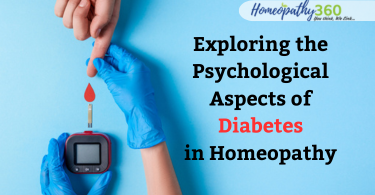Recovery from opiate addiction is a challenging journey, often accompanied by uncomfortable withdrawal symptoms when individuals attempt to stop using opioids. This phase can be daunting and difficult to overcome.
In 2020, opioid overdose nearly killed 69,000 people. According to reports, 82% of these numbers are because of synthetic opioids.
At The Nestled, we offer a beacon of hope through opiate detox. Here, we can support and guide those on the path to recovery.
| Key takeaways: Preventing opioid relapse is a realistic goal on the challenging journey of recovering from opiate addiction. The key lies in unwavering dedication and building a solid support system.At The Nestled, our specialized opiate detox program serves as a beacon of hope. providing comprehensive support and safe detoxification to guide individuals on their path to recovery. |
What is Opioid addiction?
Opioid addiction is another name for opiate addiction. This is a condition marked by obsessive usage of it despite consequences.
Prescription medications fall into the drug class of opioids. These include heroin and illicit narcotics, including oxycodone, hydrocodone, and fentanyl.
Opioid addiction can cause severe cravings and a strong dependence on the drug in the user. The body may grow tolerant to opioids over time. To get the intended effects, greater doses can be required.
Drug use that progresses this way increases the risk of serious physical and mental harm.
5 Things To Do To Overcome Opioid Relapse
Undoubtedly, the possibility of relapsing is a major issue for people overcoming opiate addiction. Although overcoming opioid recurrence calls for willpower and assistance, it is an attainable goal.
People can successfully navigate the difficulties of recovery if they choose the correct strategy and have a solid support network.
Here are the 5 things you can do to avoid relapsing on opioids:
- Involve yourself in therapies
Participate in behavioral treatment sessions such as cognitive-behavioral therapy (CBT). The underlying causes and behaviors linked to opioid usage can be addressed during this session. Individuals who receive therapy are given coping skills and relapse-prevention techniques.
2. Engage in support groups
Find peer recovery programs or support groups. They may foster a sense of belonging and comprehension. Sharing struggles and experiences with people who have had like difficulties can be energizing and beneficial for preserving sober.
3. Adopt healthy coping mechanisms for stress and emotions.
Exercise, mindfulness exercises, hobbies, and creative pursuits are all options. The likelihood of turning to opioids during difficult times might be decreased. This sudden decrease may be because of developing healthy coping methods.
4. Seek Professional Assistance
If you have a relapse or believe you may do so, contact medical professionals and addiction specialists right away. They can offer direction and assistance based on your individual needs.
5. Detoxification from opiates
Opiate detox is a crucial step in preventing relapse.
To safely treat withdrawal symptoms, it entails the elimination of opioids from the body under supervision. Detox aids people in regaining control over their lives and lays the groundwork for further treatment.
Final Thoughts
The ongoing risk of relapse can be genuine during the difficult journey to recover from opiate addiction. But today, preventing opioid relapse is a realistic goal. The secret to achieving this is unwavering dedication and a solid system.
There are a lot of specialized opiate detox programs which. The all-encompassing method focuses on the controlled and secure detoxification of opioids from the body. It can offer people the crucial support and direction they require on their recovery journey.





